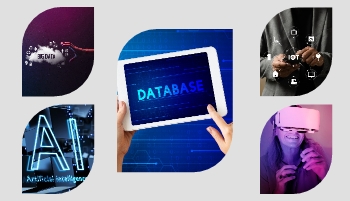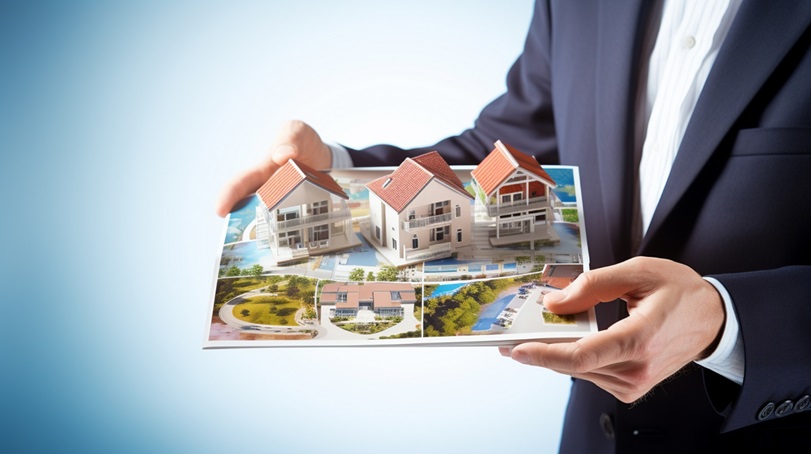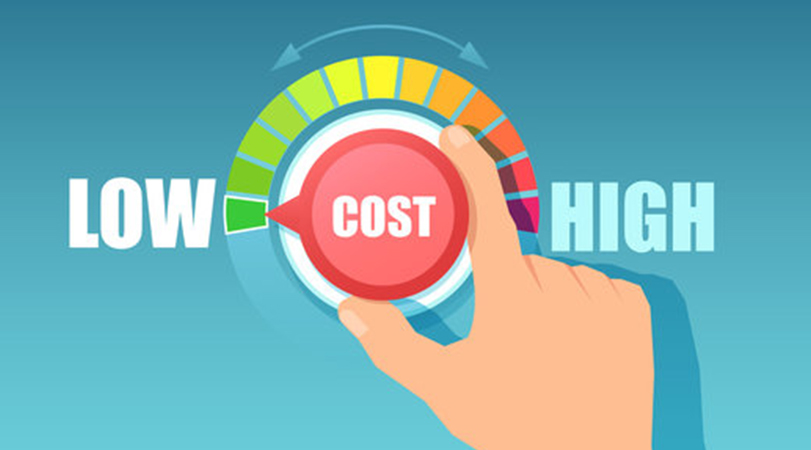There has been an uptick in the discussion about tech’s impact on the property market in recent years. As a result, the word ‘PropTech’ has entered the lexicon. The term ‘Property Technology,’ or ‘PropTech’ for short, describes the wide range of applications for information and communication technologies in the real estate industry.
Similar to how marketing (MarTech) and banking (FinTech) have been revolutionized by new technologies, the real estate industry is being reshaped by PropTech. The use of these innovative tools has the potential to streamline the whole real estate transaction, from the initial search to the final closing. In addition, they provide fresh possibilities for property investors.
This blog post will explore PropTech, how it works, and why it matters.
Proptech: What Is It Exactly?

The term ‘PropTech,’ short for ‘property technology,’ describes the use of real estate tech. It may refer to various uses, from PropTech companies shaking up traditional buying and selling real estate methods to more general internet tools and platforms aiding search and discovery.
While the environment of the PropTech industry is ever-changing, the following are some active research areas:
-
Property-related online markets and portals for renting, purchasing, and leasing.
-
Blockchain-based transactional platforms
-
Utilizing artificial intelligence to power property management chatbots and digital assistants
-
Virtual and augmented reality showings and excursions
-
Building automation and energy efficiency enhancement using the Internet of Things
PropTech Technologies

PropTech encompasses a wide range of technologies. However, they may be broken down into the following five areas-
- AI & ML
- Big Data
- Blockchain
- AR & VR
- Estate agents use AR apps to superimpose images of properties onto a buyer’s current surroundings, giving them an idea of what it would be like to live there.
- Developers are creating VR experiences that take potential buyers on a tour of their developments, including show apartments and communal areas.
- Homebuilders use VR headsets to give buyers a walkthrough of their new home before it has been built.
- The potential applications of this integrated PropTech, like AR and VR, in the property industry are vast, and it’s only a matter of time before these technologies become commonplace.
- IoT
- IoT sensors can monitor a building’s functioning in real-time, detect concerns early, and forecast maintenance requirements.
- It can boost energy efficiency, occupant comfort, and safety.
- In addition, IoT data may reveal how people utilize space and how to maximize it.
Two of the most talked-about developments in the PropTech sector are artificial intelligence (AI) and machine learning (ML). The question is, what do they imply?
Artificial intelligence, or AI, refers to the capacity of robots to carry out activities often associated with human intellect, such as identifying patterns and interpreting spoken language. Machine learning (ML) is the branch of artificial intelligence that enables computers to learn from data and incrementally improve their capabilities.
The PropTech business uses AI and ML in various ways to change how we purchase, sell, and manage real estate.
Some Instances are listed below.
1. Intelligent chatbots: The chatbots powered by AI and ML can be used to help answer customer questions, provide recommendations, and even close deals.
2. Smart pricing: Using data from past transactions, AI and ML can help predict future property values, giving buyers and sellers a better idea of what to expect.
3. Predictive maintenance: By analyzing data from sensors placed on equipment and buildings, AI and ML can help predict when maintenance will be needed, preventing costly downtime or repairs.
4. Improved search:AI-powered search engines can help you find the perfect property faster by understanding your preferences and matching them with available listings.
With the world becoming digitized, the amount of data created daily is growing exponentially. The term ‘big data’ describes this flood of information in many contexts.
The phrase ‘big data’ is often used to describe datasets that are too massive and complicated to be processed using conventional methods.
There are several difficulties associated with big data, such as scalability, accessibility, and organization. Businesses and other organizations that can use these possibilities will benefit greatly.
Regarding big data, some PropTech companies are at the forefront of innovation. One of the fascinating sectors of the modern economy is prop-tech because of the mix of big data and cutting-edge technology.
Blockchain is a distributed database that allows for secure, transparent, and tamper-proof record keeping. Real estate PropTech companies are using blockchain to streamline the real estate transaction process and create a more efficient and safe way to buy, sell, and manage the property.
Blockchain provides a shared, immutable ledger for all transactions within a network. It enables each party involved in a transaction to have visibility into the entire history of that transaction, ensuring transparency and trust. Blockchain also allows smart contracts to automate specific actions based on predetermined conditions.
Augmented reality (AR) and virtual reality (VR) are two of the most talked-about technologies in the PropTech world. AR is a technology that overlays digital information in the real world, while VR creates an immersive experience.
The following augmented reality and virtual reality (AR and VR) PropTech solution is one example of how AR and VR are being employed in the real estate industry:
The Internet of Things (IoT) is a network of gadgets, cars, buildings, and other things containing electronics, software, sensors, and network connection that gather and share data.
IoT can make buildings more intelligent and connected, transforming the property business.
For instance,
PropTech companies are using IoT to create intelligent buildings and homes that can be controlled and monitored remotely. By collecting data on how people use energy, water, and other resources, PropTech companies can help make our buildings more sustainable and efficient.
PropTech’s Advantages

There are many advantages to using Property Technology in your search for a new home or investment property:
-
Centralized Storage
In a tech-driven industry, data management and storage are crucial. Each property owner stored their documents and data in the past. This resulted in redundant data and wasted space. It requires centralized storage.
A centralized storage system stores your data in one place. It’s simple to access, manage, and monitor data changes.
A centralized storage system has various advantages:
- First, it organizes your info.
- Second, you can quickly monitor changes and updates.
- Third, it backs up in crises.
- Fourth, it could save money by eliminating the need for several storage devices.
-
Better Construction, Marketing & Sales
Real estate technology is making managing projects, interacting with customers and partners more straightforward, and remaining on time in the construction business.
Construction, real estate marketing agency, and real estate sales benefit from PropTech. Schedules, material ordering, and subcontractor collaboration can be managed using PropTech in construction.
Virtual reality tours, 3D drawings, and interactive floor plans can be created using PropTech in marketing. Salespeople can utilize PropTech to develop leads, monitor prospects, and finalize agreements.
-
Improved Productivity & Communication
Using PropTech, all parties to a real estate transaction may complete their tasks more quickly and communicate more effectively. PropTech can make it easier for a business to keep track of its properties and assets. Companies can better understand where their assets are and how they are being used with PropTech. It has the potential to enhance corporate operations and resource management.
By providing a centralized hub for information sharing, PropTech may aid in expediting the process and reducing the need for in-person meetings. It has the potential to reduce expenses and shorten completion times.
Furthermore, PropTech may aid in conflict resolution by facilitating better communication between all parties.
-
Analytics for Informed Decisions
Property managers with access to data and analytics can better make informed judgments. The use of modern technology has allowed property managers to gather and analyze data faster and more accurately, allowing them to make more educated choices for their properties.
Some benefits of employing PropTech for analytics include the following:
1. Increased accuracy - The use of modern data collection technology ensures that building managers have access to reliable statistics. This is crucial when deciding how to proceed with maintenance or remodeling.
2. Faster decision-making Data and analytics facilitate rapid decision-making for property managers. It’s helpful in cases when there’s a pressing deadline.
3. Better insights – Property managers may learn things about their buildings that they wouldn’t know otherwise using data and analytics. As a result, they will be able to see patterns and trends that will aid them in making future choices about their assets.
Conclusion:
New and creative property technology, often known as PropTech, is gradually replacing the traditional, labor-intensive methods that preceded it. PropTech is leading a change in the real estate industry.
How real estate is traded, rented, and leased are all being revolutionized by PropTech. Both the buying and selling processes are simplified and streamlined as a result. By putting cutting-edge tools into the hands of real estate professionals, PropTech is revolutionizing the sector.











































































